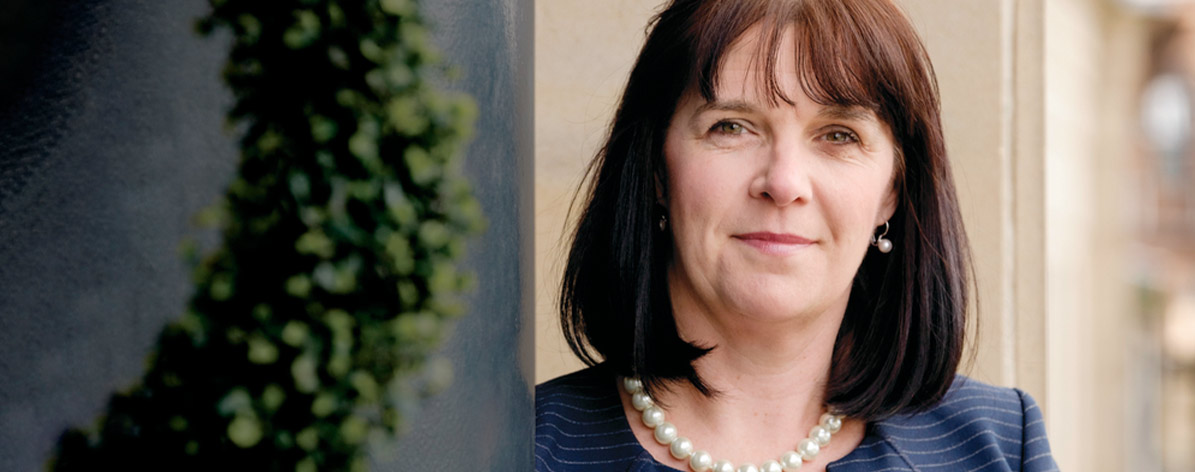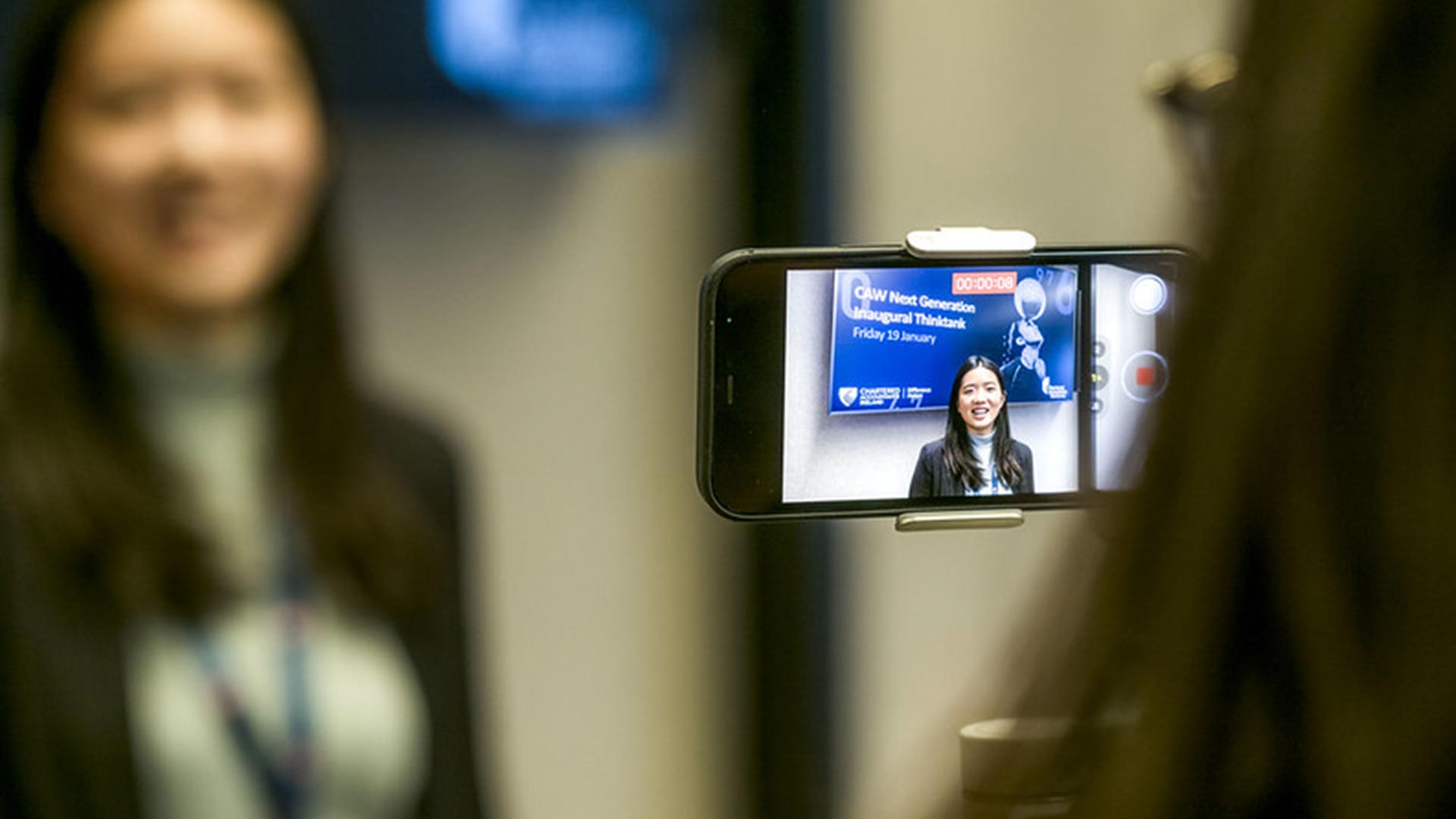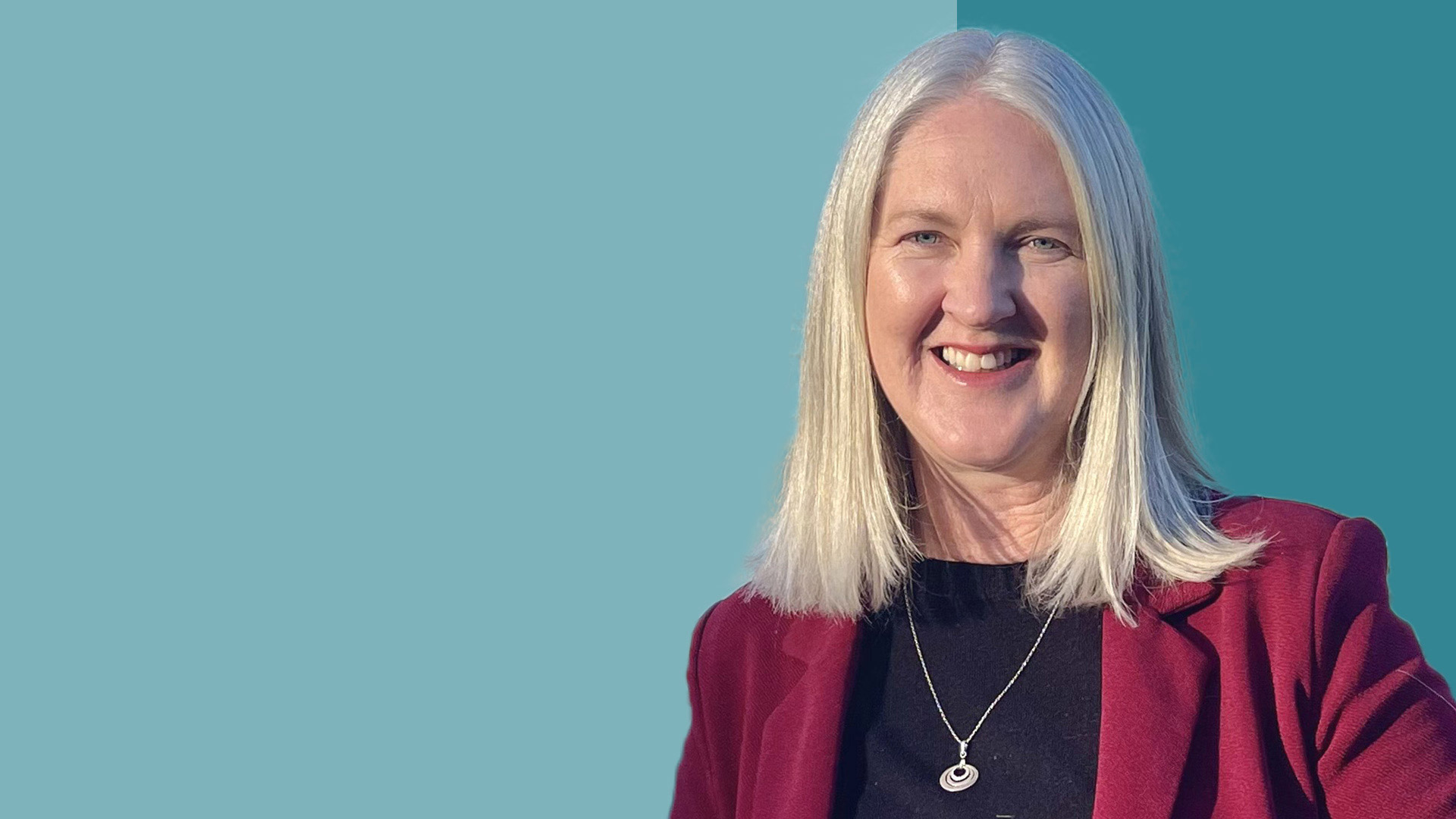Catherine Burnet: Pushing the reset

 New ICAS President, Catherine Burnet CA, talks to Lysanne Currie about her career, diversity, trust and her hope that the current crisis may be a spur to overhaul the way we do business.
New ICAS President, Catherine Burnet CA, talks to Lysanne Currie about her career, diversity, trust and her hope that the current crisis may be a spur to overhaul the way we do business.
Life comes at you fast, as even the most jaded among us now appreciate. And for Catherine Burnet, who becomes ICAS’ new President this year, life couldn’t be more in flux at the moment.
“If you’d told me in 1997, ‘One day, Catherine, you’re going to be involved in helping to shape ICAS’ strategy and be President’, I would have looked at you as if you had 20 heads, never mind two.”
Yet far from being daunted, she is well prepared, and positively sparkling with forward-facing positivity.
This isn’t the first time she’s taken on a new role just as the world appeared to be staring down the barrel. In 2009, amid the heat of the crash, she was seconded to Chicago and New York for two years.
“It was extraordinary to see,” says the KPMG partner, “because the banking industry in the US is much more diverse than here in the UK. Banks were being closed down or acquired on a regular basis and there was a subsequent significant social impact. Tent cities sprang up as a result of increasing homelessness.”
On a personal level, however, she found it a “fantastic opportunity” to work overseas and build an international network that she utilises to this day. She may need it. Her latest new role – as ICAS President – coincides, once again, with a world gripped by fear and uncertainty.
This time the economy is torn between the need to preserve health and life and the need to earn, to do business and build a future.
“Nobody would want something like this to happen – and the outcome will not be good, not just for the economy, but also the impact on individuals and families,” she says.
“One of the things I’ve been talking to people about is that clients are really unsettled, really nervous. We have to stay close to them, and to help them back up again.”
Burnet has a knack for finding silver linings and, like many, she takes heart from the enhanced sense of solidarity, of fellowship, she sees developing.
“I’m of the view that you don’t look a gift horse in the mouth: a crisis which is going to precipitate better behaviours, and make people realise it’s possible to be as effective and efficient out of the office, will be a good thing in the long run. The coronavirus is very challenging for the economy, but maybe it also acts as a bit of a reset. There’s an element of community spirit, supporting the people and the businesses around us, which very much links to stakeholder capitalism. I just wonder if, post-crisis, we’re going to view business in a different way; that we’re not only here to maximise profit, but also to use our capabilities and the resources we have as individuals or companies to look at some key issues.”
And while she firmly believes members have the experience and skills to tackle the economic impact of Covid-19, “it may also give us an ability to demonstrate our value in terms of our profession – how we can use information and data and get back on the front foot. The opportunities for ICAS are by demonstrating that value. It’s about an attitude of lifelong learning and utilising the diversity of our membership to really harness all the change and use it to our best advantage.”
Transparency
Diversity is one of Burnet’s watchwords: “It’s really important for me,” she says. “ICAS has to embrace change. We’ve set up a new diversity committee, working on encouraging diversity into ICAS and very much making accountancy open to all, across all the boards and the governance structure, so it’s not seen as something you can only achieve if you come from certain backgrounds or perspectives.”
For Burnet, championing diversity is less about enforcing quotas or setting targets, rather about being much more transparent around representation.
“What do we need to ensure we have got it right? Diversity of thought is really important as I want us to have challenging and open discussions – at Council, with members and the ICAS executive team. And then reach agreement on the best way forward for ICAS.”
Retraining and reskilling are also high up on her agenda. “Are we still fit for today’s environment?” she asks, addressing the ever-changing nature of the workplace – which is likely to change even faster in the wake of Covid-19 and with the further encroachment of automation on traditional jobs.
A people person
Burnet had a happy childhood, growing up in Belfast with her mum, dad and brother Chris. Her dad was a quantity surveyor – “an accountant for architects”, as she describes it.
“Funnily enough while I am an accountant my brother is an architect.” But her heart wasn’t always set on becoming an accountant.
The “sliding doors” moment came after her A-levels: she’d considered studying medicine at Queen’s in Belfast. Instead, she went to the University of St Andrews to study geography, and specifically human geography for her finals.
“I was very interested in population studies, city economies and how things evolve,” she says.
“Cleaning out my study last night, I found some of my human population books and I thought, ‘I bet those are really relevant right now.’ If I hadn’t studied geography, I wouldn’t have met my husband because I met him in St Andrews – so on two fronts, good news!”
After finishing her degree she applied to a number of large accountancy firms. The profession appealed, she says, “because I saw it as a fantastic qualification and as an opportunity to be able to shape my career and do the things that I wanted to do”.
She was offered a job at KPMG, where she has been for 25 years, and got her CA through ICAS – “after speaking to my dad who said, ‘Well, I think it’s about time you got a job, get on with it.’”
She qualified in 1997, married the same year, and moved to London, where her husband was working.
Burnet has operated primarily in financial services, although in a flexible set-up she’s also had a number of oil and gas clients, and has done her share of audit and advisory over the years. After leading KPMG’s financial services team in Scotland, she took over as Regional Chair, leading all its business in 2016.
Having taken a step back from ICAS during her time in the States, she re-involved herself once she had returned to the UK: “I felt like I wanted to give something back in some way,” she says.
She offered to teach classes and mark exams – but ICAS had other plans for her: “They were looking for someone to chair the audit committee, which for me was a great opportunity. When you work in the profession, because of conflicts [of interest] and independence rules, there are very few opportunities for you to take that non-exec-type role.”
Three years later she went on to chair the oversight board and work closely with the leadership. “I’ve observed and learned from a number of presidents and executive teams,” she says.
“One of the key things I really value about ICAS is it’s a relatively small membership organisation, but because of the individuals involved we have a huge ability to influence, support debates and bring our views to the table; because of our size, we can actually move at greater speed. A lot of people give a lot of time to ICAS and the qualities and skills really do complement each other in terms of diversity of thinking.”
Trust is an issue too, particularly in the wake of the Brydon Report, which revealed that faith in business is low.
“Restoring trust in the profession is absolutely fundamental and one of the things I talk to my teams about a lot,” she says.
“ICAS puts a huge amount of focus on individual ethics and doing the right thing. Our challenges are around the areas of trust and respect for the profession – and how we focus on technology, artificial intelligence and data. After coronavirus, how do we return to growth?”
It’s all a poetic kind of homecoming for the prodigal daughter: “I ask myself why I drifted away from ICAS,” she says.
And, given that she once did,“How can we engage members better? How can we actually use some of the technology and some of the opportunities we have to change people’s experience of ICAS? What I always come back to is, this is an organisation primarily here for the benefit of its members. But it also serves to protect, so we have a huge focus on the public interest.”
Ultimately, she says, “We need to always look to challenge ourselves, to embrace change and be open to it, as opposed to trying to defend a position which has moved on.”
Presidential words indeed.
Catherine Burnet’s Career
- Education: Studied geography at University of St Andrews
- 1994: Joins KPMG Audit as a trainee
- 2004: Made Senior Manager
- 2007: Made Director
- 2009: Moves to the US as Seconded Partner, based in Chicago
- 2011: Returns to Edinburgh as Partner, leading the financial services team
- 2016: Becomes Regional Chair
This article first appeared in the June 2020 issue of CA magazine: https://www.icas.com/members/ca-magazine/ca-magazine-articles/catherine-burnet-ca-pushing-the-reset












